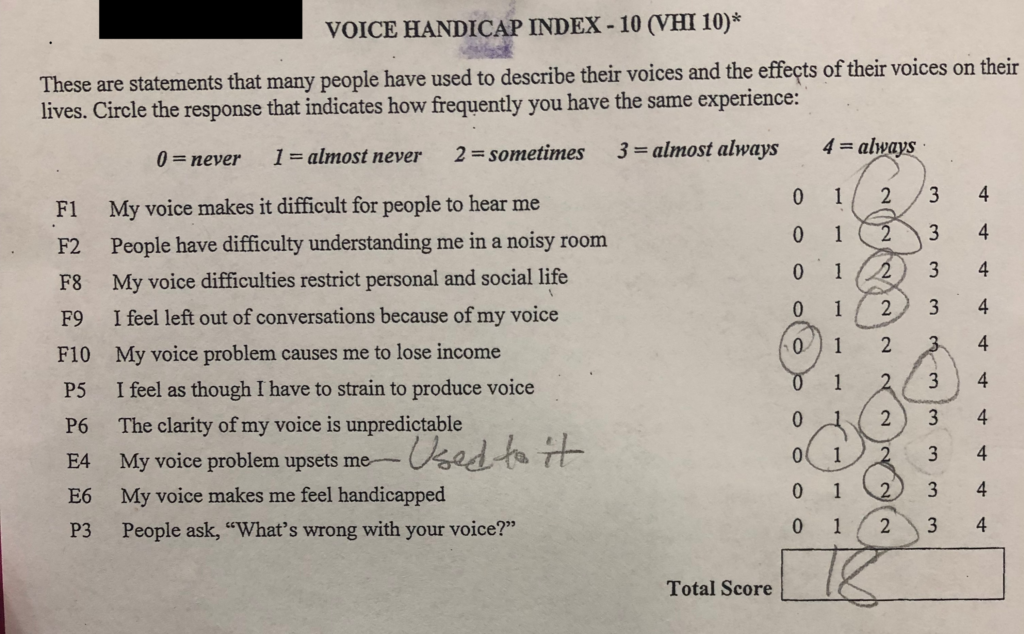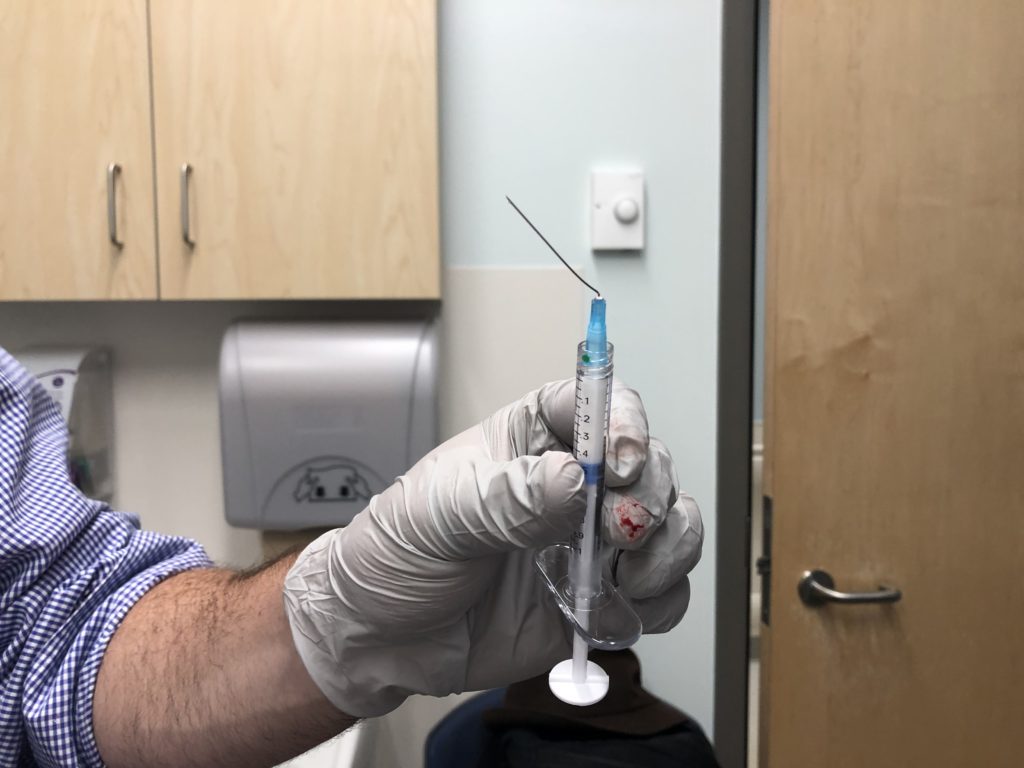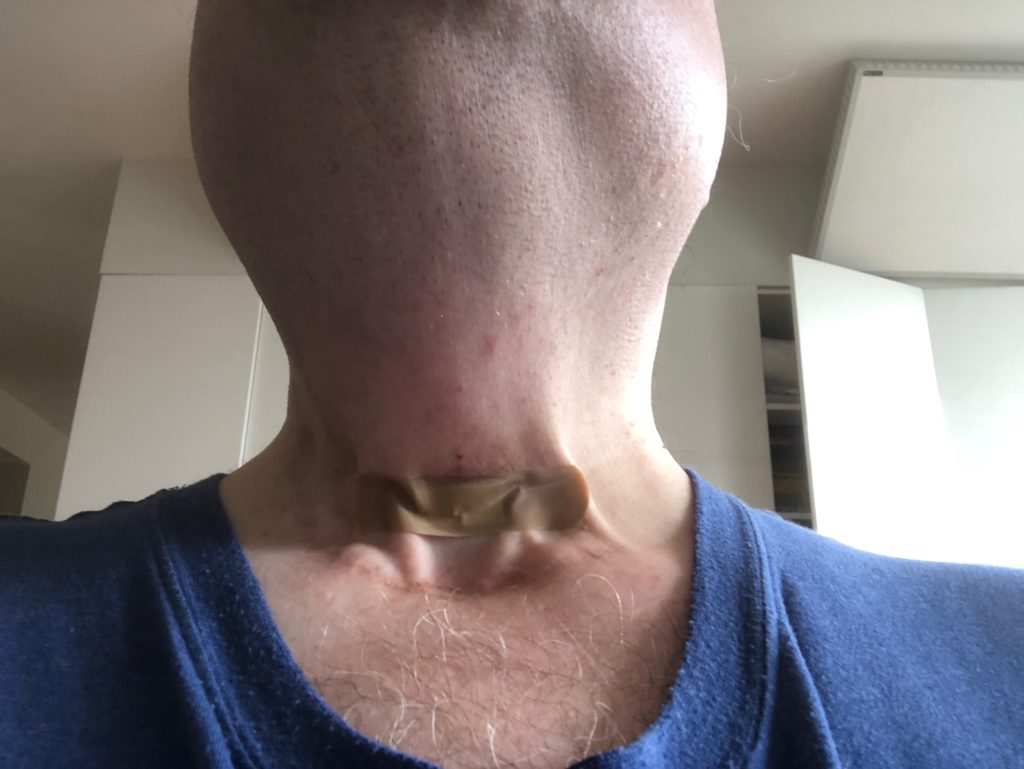So one of the big questions of life on Lenvima is how much can I push myself. The answer is “somewhat less than August.” We had a flurry of visitors through town early in the month, then went to King Crimson band camp for a week, which was a blast but not the kind of thing where you’re getting a full night’s sleep. Then I came back and it’s Mutek. And there’s a whole pile of deadlines I have to meet this week and next.
This morning I woke up on 6 hours of sleep, got on the metro to go to the Royal Vic (new location at Vendome) for my voice lift, and rode two stops past Vendome. So I got out, got on the metro going the other way. And missed Vendome again. I managed to get off at the right stop on the 3rd try.
Yesterday was a CT scan at the Jewish. Today is laryngology at the Vic. Long-time readers of this blog will know that a) I get vocal cord injections about every 18 months (“voice lifts” which help me talk, breathe and swallow with a paralyzed vocal cord) and b) I did not start out as an “easy” patient in this regard. It’s gotten a lot easier since that first visit and the doctor and I have a good rapport.
After the metro debacle, I arrived to find a survey. It’s weird to be subject to instruments that in other contexts I analyze (I had a student write an amazing paper on pain measurement surveys in my disability course a few years back). But here we are and my knowledge is working against me. What is a 3 or 4? What counts as “severe” or for that matter “always”? I don’t feel bad about my vocal paralysis–I have accepted it totally–but it is a pain in the ass (even one were to love oneself totally, it would still be possible to annoy the one you love). I guess that’s a 1? What does it mean to feel handicapped? This is an old survey so it’s obviously infused with what disability scholars call “the ideology of ability” but feeling impaired–well, that’s just a fact of life, right? Ok, 2.

Onward into the exam/surgery room.
Here’s a reminder that this post says “trigger warning, throat stuff.” Continue reading at your discretion.
Let me also say that for the record, I would and will do this again, and in fact would recommend it to other people who have paralyzed vocal cords and can’t have neck surgery to have them gore-texed into place (yes that’s a thing, but I’m not a candidate). Remember, I’m a “difficult patient.”
They’re using the high-definition camera today so I “know” it’s going to be a good day.
A resident will be doing the work under the doctor’s supervision. Okay–we’ve done that before, no problem.
I get the anaesthetic (sprayed up my nose, then down my throat, then injected). I’m good and numb. The camera goes up my nose. The needle with the goo to inflate my paralyzed vocal cord goes in and…the resident says “I’m low.” “Yes, you’re low,” replies the doctor. Lots more poking around. Finally they find the right spot and the needle goes in to inject the goo. There’s one problem. The “high” part of my vocal cord is not fully anaesthetized. I’ve been in worse pain, but it hurt like hell. They finish with that syringe and the doctor says he wants to put in a little more. I agree, since we’re “almost there.” He praises me for being stoic, which is nice of him. I am probably making faces the whole time so this is some kind of bizarre act of collective denial or social grace.
Out comes another syringe. The problem is they keep running into cartilage that bends the needle–or maybe scar tissue from my surgeries way back when. Anyway, it’s a problem to get the needle in the right place.
How much of a problem? This much:

It finally goes in but then I hear the resident say “it’s coming out the other side.” That’s not a phrase I really want to hear in this situation. We decide to call it a day. I’ll come back in six weeks and we’ll see how I’m doing.
On the way out, the resident offers me a band aid, saying “it’ll be less disturbing to other people.”

I suspect I just fixed that. BTW, the neck shot is a classic visual rhetoric of thyroid cancer, but that’s another essay for another time.
Having already abandoned the idea of attending a very interesting-looking set of AI-related talks at Mutek-IMG, I head home. After picking up some new drugs at the pharmacy and some groceries at the corner, I just want to go to sleep. That takes awhile as I can’t take any pain drugs yet because I’m still numb (not a good idea to swallow things with a numb throat). Finally, blissful unconsciousness arrives.
A short time later I awaken to the sound of jackhammers coming up through the floor into the bed. They are jackhammering our sidewalk. No more rest for me today.
On the plus side, a few hours later, I can say it’s already easier to swallow (having now taken said pain meds), and we’ll have a new sidewalk in a couple days. Talking feels funny–but it always does for a couple days after the procedure.
